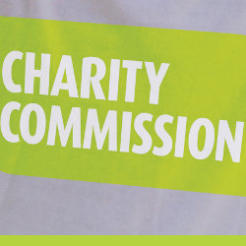The Charity Commission does not have a duty to disclose information about completed inquiries under the Freedom of Information Act the Supreme Court has ruled.
But it could face a new challenge requiring it to reveal the same information under the common law.
The Supreme Court judgment, released today, deals with an appeal by Times journalist Dominic Kennedy, who in 2007 asked the regulator for information gathered in three investigations into the Mariam Appeal, set up by Respect MP George Galloway to campaign against sanctions on Iraq.
The Commission refused, saying the Freedom of Information Act provided an absolute exemption from disclosing information gathered in the course of an inquiry. Kennedy appealed, argued the exemption did not apply once an inquiry was concluded.
The Supreme Court said today the Commission did not have to disclose the information under freedom of information rules.
The judgment included dissenting opinions from two of the seven judges, who said they would have allowed Kennedy access to the information.
The judgment also said the Charity Commission has the power to disclose information to the public concerning inquiries on which it has published reports under general common law duties of “openness and transparency”, and that any refusal to disclose under these duties could be subject to judicial review.
Common law right to information
Rupert Earle, a partner at Bates Wells Braithwaite, the specialist charity law firm, who acted for Kennedy, said the judgment has “effectively created a common law right to information, at least in respect of those exercising quasi-judicial functions, which is largely equivalent to the Freedom of Information Act, and which neither the Commission, nor Mr Kennedy, nor the lower courts knew previously existed”.
He said under this new right, the Commission has only a qualified right to withhold information, rather than an absolute one.
“Dominic can submit a new request, and the Commission will have to consider it again,” he said. “I would imagine he will almost certainly do so.
This time, he said, the Commission must conduct a balancing exercise, judging the public interest of disclosure against "countervailing arguments that may be advanced" which could include the right to protect information disclosed in confidence and the right to conduct future inquiries without prejudice.
“If we are not satisfied with the Commission’s response, we can then seek a judicial review under the common law,” he said.
Kenneth Dibble, chief legal adviser and head of legal services at the Charity Commission, said in a statement following the judgment that any right to information had to be balanced against the need to conduct effective inquiries.
“That is why the exemption upheld by today’s judgment is so important,” he said. “Ultimately, this will help us uphold public trust and confidence in charities.”









